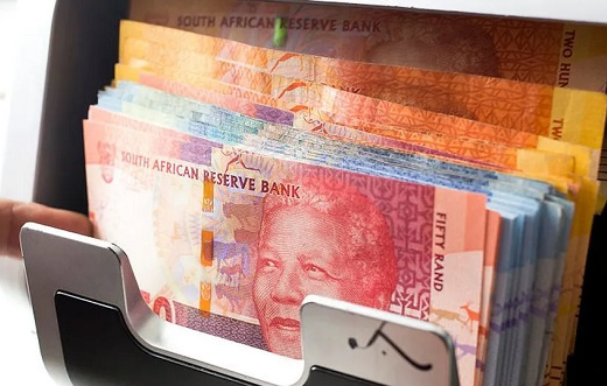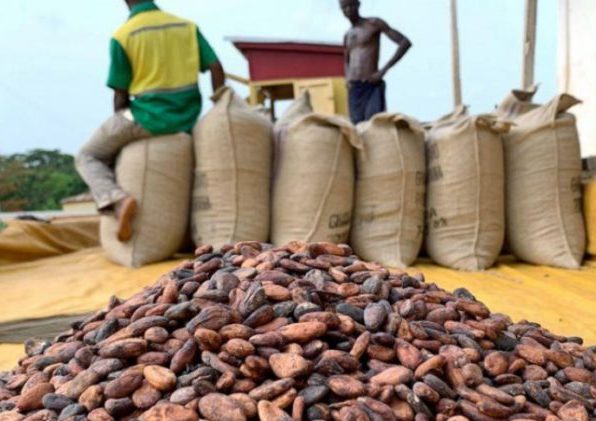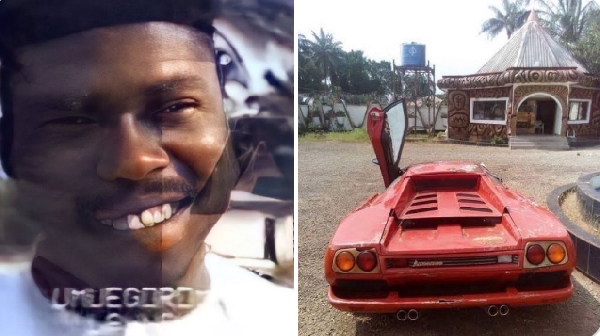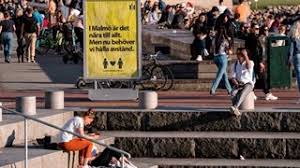EuropeNews Africa
Straddling for Balance: Russia’s ‘No-Cost Deliveries’ Soft-Power Reaches Africa
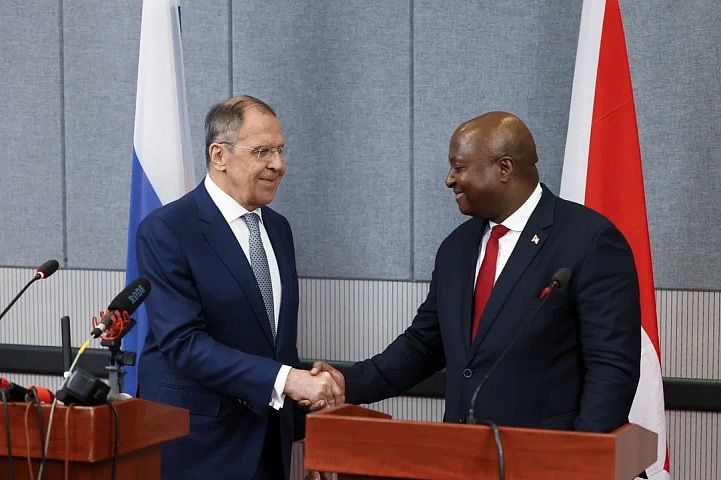
Something interesting happened in late May. It was not extraordinarily new, but Foreign Ministry Spokeswoman Maria Zakharova only hinted during her last media briefing that “Africa has not forgotten, just as it has not forgotten those who helped it to break free. The point at issue is not only that African countries and peoples were liberated, but that colonialism, as such, is a shameful part of history.”
She did not say anything about her boss Sergey Lavrov’s trip (in fact his third African trip this year) through Kenya, Burundi and Mozambique to South Africa. The top Russian diplomat has never visited the region so frequently before. Rather Zakharova concluded her briefing on Africa thus: “We have also prepared a small surprise for tomorrow. Follow our accounts in social media and you will see and, I hope, like it.”
Following the accounts, Sergey Lavrov on his way to BRICS foreign ministers meeting visited three more African countries. With intense competition by external powers to influence affairs in Africa, majority have adopted neutral attitudes to most the current global geopolitical politics. African leaders have also learned to be utterly indifferent to the ongoing Russia-Ukraine crisis, often asking for dialogue as mechanism for ending the conflict. Of course, being neutral offers Africans multiple chances to use the opportunities for raising economic growth in Africa.
Our monitoring reveals nothing very significant except convincing African leaders to attend the forthcoming summit, making promises of signing more economic and trade pacts. While the pledges of Russia’s preparedness to play effective role in economic development show reassuring effects, African leaders and Africans have oftentimes heard those driving narratives that the West and Europe are in the center of the world.
The world is changing with new global players crafting their own models to engage with Africa. In any case, Africa has the opportunity to leverage on the renewed interest from the West and emerging global actors to craft suitable investment models that can lead to efficient intra-African infrastructure development, value addition whatever on the continent, and determining ways of boosting energy security, modernising technology, and information and communication technologies.
Recognising the fact that African landscape is changing, Russia has to understand that the new investment model should focus on activating indigenous African systems (agriculture, industry, pharmacy, knowledge and skills training et cetera). These to be delivered beyond ‘business-as-usual’ approach and never-ending geopolitical rhetoric.
At least and most probably Russian officials begin to walk their talk. Russian President Vladimir Putin previously mentioned “no-cost deliveries” in a number of African countries during the international parliamentary conference to ear-deafening applause, and phone conversation with South African President Cyril Ramaphosa.
These African countries receiving “no-cost deliveries” attribute great importance to this soft-power format, noting precisely their mutually beneficial alliance with Russia as a great power standing shoulder to shoulder against the United States and Europe. Russia is seen as an integral player steadily moving forward the new multipolar world.
As official Spokeswoman Maria Zakharova indicated about the “surprise” in the briefing, Sergey Lavrov without mincing words after talks with the political leadership in Mozambique’s capital Maputo, said Moscow intends to deliver a shipment of Russian fertilizers to Nigeria free of charge in the near future. Reports monitored in Kenya indicated that Moscow gave 30,000 metric tons of fertilizers to Kenya.
Many African policy experts I have interviewed there explained that Russia showed its back to Africa after Soviet’s collapse, and now with the conflict raging in Ukraine 15 months after it’s invasion, Russian officials are tussling around for influence on the continent of 1.3 billion people.
The Russian leadership needs to be told the truth, and it needs to act on it. For instance, Professors Irina O. Abramova and Leonid L. Fituni in their joint report suggested that “it is time for Russia, which over the past 30 years has unsuccessfully sought to become part of the West, to abandon illusions and reconsider its foreign economic and policy strategy, reorienting itself to states that are turning from outsiders into significant players in the international political and economic space and are willing to interact with our country on a mutually beneficial and equal basis.”
In addition, the report underlined the fact that Russia’s elite demonstrates a somewhat arrogant attitude toward Africa. High-ranking officials have often used the phrase ‘We (that is, Russia) are not Africa’ – to oppose attempts at changing the status quo, to change the approach toward Africa. And that Russian initiatives should be supported by real steps and not be limited to verbal declarations about the “return of Russia to Africa” especially after the Sochi gathering, which was described as very symbolic.
Official visits to and from proliferate, only end up with the display of eternal passion for signing documents called Memoranda of Understandings and bilateral agreements with African countries. Late May, Lavrov’s visit was the first to the East African country in the past 13 years. He held negotiations with Kenyan President William Ruto, who was elected last year, as well as with the Kenyan foreign minister and parliamentary speaker.
According Izvestia report, following talks with the Kenyan leader, Lavrov announced that an intergovernmental commission on economic cooperation will be established later this year. However, trade between the two countries leaves much to be desired: In 2021, Kenya ranked sixth in exports to Russia with $140 million, while Russia sold products worth $220 million to Kenya. Lavrov said that Moscow and Nairobi were ready for cooperation in energy, finance, telecoms, education and other areas.
In East Africa for instance, Kenya is an important international trade partner in terms of seaborne transits. The country is also a major intercontinental banking hub now. The incumbent leadership takes a balanced position and favors expanding economic and humanitarian ties with Russia. Relations with Kenya will always matter for expanding and strengthening positions in East Africa.
“Last September, President Vladimir Putin announced that we were ready to deliver 300,000 tons of our fertilizers, illegally seized in EU ports, to African countries free of charge. Fully in line with colonial practices and habits, the EU leadership blocked this initiative. It took us 6 months to get at least the first shipment of 20,000 tons to Malawi, and just recently another shipment of a similar amount of fertilizer was delivered to Kenya. The same shipment is scheduled to go to Nigeria soon,” he said in Bujumbura, capital of Burundi.
Serving these interests is President Evariste Ndayishimiye’s consistent policy to uphold his country’s right to have an independent point of view and develop relations with those, who are ready to do that on a mutually beneficial basis, including, in this case, the Russian Federation, according to Lavrov, and appreciated the efforts undertaken by Burundi and its president to facilitate the settlement of various persisting conflicts in Africa, including in the region of the Great Lakes, the Central African Republic, and Somalia, where Burundian peacekeepers are stationed.
Let me emphasise in this report here that the neighbouring the former Soviet republic of Ukraine is also making feverish efforts to connect with Africa. It plans to install production facilities and to engage in the agricultural sector in a number of African countries. Fertiliser for local African farmers to help appreciably ensure food security. Interestingly, Kenya received 30,000 tonnes of grain from Ukraine, which is at war with Russia, on March 20, 2023. With is Ukraine seems moving ahead of Russia.
Lavrov’s visit was seen by many as having geopolitical ramifications since Russia is at war with Ukraine, an invasion that has negatively affected fertiliser supply in many African economies. In a statement, Russian company called Uralchem-Uralkali was the source of the gift from Russia with facilitation from the United Nations’ World Food Programme (WFP). Uralchem-Uralkali Group is owned by Dmitry Mazepin who is a close confidante of Putin. He is under European Union (EU) sanctions following Russia’s invasion of Ukraine on February 24.
In order to remain in business, Mazepin handed over his company to Dmitry Tatyanin, the firm’s chairman of the board of directors, and CEO Dmitry Konyaev. “We also believe that today’s alarming global hunger crisis can only be alleviated by urgent and collective action on all levels. We look forward to seeing Kenyan farmers putting the donated fertilisers to good use and reaping a fruitful harvest,” Konyanev stated in the statement.
Within this context, we simply have to note that all of this comes at the cost of enormous efforts by the World Food Program and UN Secretary General Antonio Guterres to “overcome the openly Russophobic position of EU members who oppose any initiatives that in one way or another will help developing countries, if such assistance is provided by the Russian side.”
On May 30th, Lavrov arrived in nearby Burundi. The country’s foreign minister, Albert Shingiro, termed the top Russian diplomat’s visit to the landlocked East African country as historic. In turn, his Russian counterpart gave a high appraisal of bilateral negotiations between the two countries in a number of areas and said that an agreement on peaceful nuclear development was in the final stages of coordination. Burundi plans to build its first nuclear power plant with Russia’s help. Given the country’s critically low level of electrification, this project is very important.
Burundi, being a poor country even by African standards, has a strategically important location on the continent. “Burundi is a connecting logistics hub. This potential has not been used by Russia to its full extent,” Leonid Fituni, deputy director of the Russian Academy of Sciences’ Institute for African Studies, told Nezavisimaya Gazeta.
Speaker of Mozambique’s Assembly (parliament) Esperanca Bias visited Moscow in April. She expressed her country’s readiness to strengthen bilateral cooperation, adding that the partnership of Russia and Mozambique was of strategic nature. The country’s President Filipe Nyusi is expected to visit Russia in July to participate in the second Russia-Africa summit.
Historical records say Russia and Mozambique established diplomatic relations on June 25, 1975 – the day when the country proclaimed independence. The two states have also set up a bilateral intergovernmental commission on economic, technological and scientific cooperation, which had its second session in Russia’s second largest city of St. Petersburg in November 2022. A number of bilateral agreements in various spheres – from defense to humanitarian cooperation have been signed.
During the diplomatic talks in Maputo, the two delegations are expected to discuss ways to boost bilateral relations and address international issues, including situation in various African countries, cooperation in the United Nations and the situation around Ukraine.
Governance and Policy Analyst Vincent Kimosop underlined the fact the deal was part of Russia’s strategy to curry favour with Ruto who has been receiving many guests from the West. “Russia is seeking to shore up its international image. It’s all about the shift in global politics and countries advancing their interests. Notably, the country is engaging both sides, east or west, and reaping maximum benefits,” stated Kimosop.
After visiting Maputo, Lavrov departed to Cape Town to attend a meeting of foreign ministers from the BRICS group of nations (Brazil, Russia, China, India and South Africa). In a nutshell, we can say that Russia still has friends in world. At best, it is critical to understand that African nations rather tend to be neutral, carefully differentiating between geopolitics and economic issues, therefore they will continue doing business with Russia, the United States, the European Union, China, India and other potential partners around the world.
Russia and Africa have traditionally maintained friendship, and it is symbolic that the second Russia-Africa summit coincided with the round figure of the Organisation of African Unity was established 60 years ago on May 25, 1963. The OAU now transformed into African Union (AU) which is working to formulate collective approaches to peace and security, the development of democratic processes and training of human potential, as well as to ensure socioeconomic growth across Africa.
Lavrov has been Russia’s Foreign Minister for 19 years since 2004 driving the Russia-Africa relations. In practical terms, Russians have however acknowledged lagging far behind and also late to the African party. Russia is straddling to reclaim part of the old Soviet’s legacy of influence: friendship and solidarity, political and economic cooperation. The forthcoming summit, which is to take place in St. Petersburg in July, will be a major foreign policy event in Russia-Africa relations and will give new momentum or impetus to the entire relations with Africa.
Source: Thepressradio.com| Kestér Kenn Klomegâh

